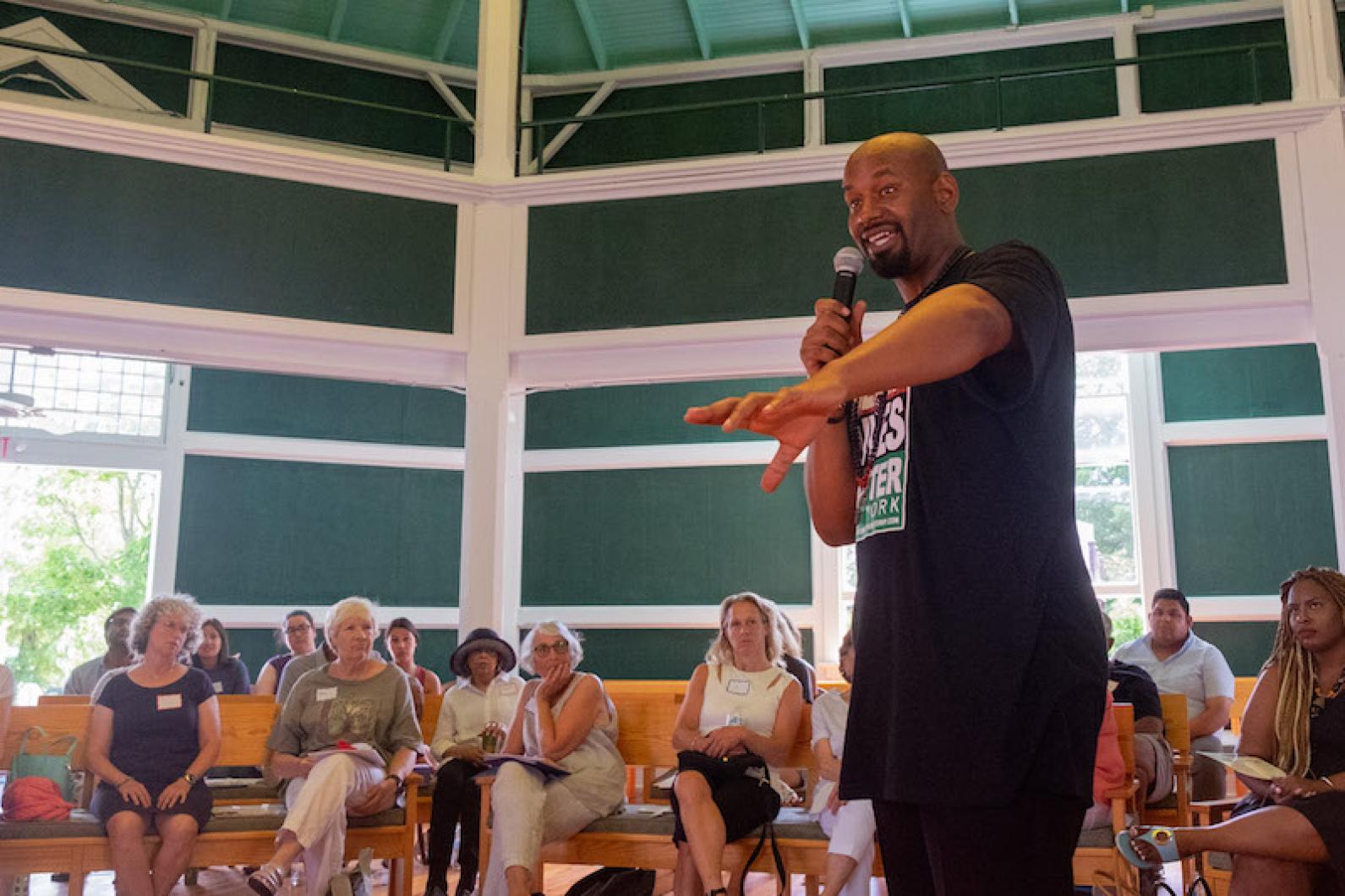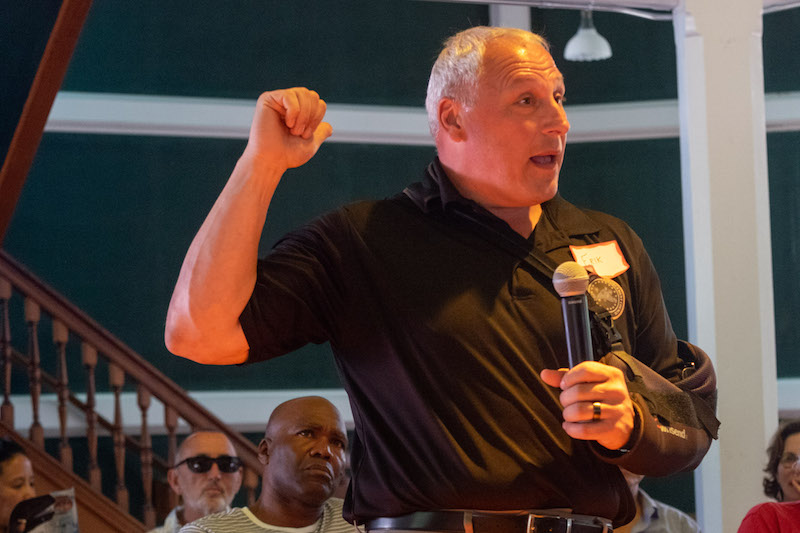The day after the Fourth of July, Hawk Newsome, leader of the Black Lives Matter movement in Greater New York, addressed a crowd gathered at Union Chapel for a symposium entitled Keeping Democracy Alive: Understanding What Divides Us and What Binds Us.
“I love America,” Mr. Newsome said from the lectern. “America just doesn’t love me back all the time.”
Mr. Newsome was joined on stage by keynote speaker David Blankenhorn, president and founder of Better Angels, a nonpartisan organization whose mission is to unite a divided United States. The event was organized by Dr. Louis Sullivan, Bill Kaufmann and Jordan Cohen. Dr. Sullivan gave the opening remarks, urging everyone to work together spark the change they wish to see in their communities.
“We’ve always been proud of the ideals on which our country is founded,” Dr. Sullivan said. “But we know that we have not always lived up to those ideals completely. We need to break out of our bubbles. To move towards each other, rather than away from each other to get to that more perfect union.”
Mr. Blankenhorn described those bubbles as polarization. His organization works to bring individuals on both sides of the political spectrum together, acting as a liaison between the sides.
“What is this thing called polarization?” Mr. Blankenhorn asked. “It causes policy gridlock. It lowers the caliber of public debate. Public discussion now resembles a food fight among children.”
His descriptions were met with vigorous nods from audience members. Hands were raised and microphones passed around as the event shifted into a community forum.
Monica Monroe, a lawyer visiting from Chicago, spoke candidly about potential solutions to bridge the gap.
“We need to focus more on what we have in common,” she said. “The one per cent versus the 99 per cent is totally outrageous and wrong.”
Boston lawyer Brent Henry countered with a question for the group. “What does polarization look like age-wise?” he asked.
Seventeen-year-old Matt Messina offered his insight. “I might be the youngest person here, but I think schools are an amazing place to form political views,” he said. “I just think we need to teach more about politics in high schools.”
Others agreed, adding that civics classes needed to play a larger role in public school curriculum.
These topics were carried into the second half of the program lead by Mr. Newsome. A Bronx native, Mr. Newsome shared stories of his activism in New York and nationwide.
“We have all got to be real with ourselves,” Mr. Newsome said. “Ask am I doing enough? Ask how can I influence more people? Because it’s the people who have love in their hearts that are going to take over the world.”
Mr. Newsome engages solely in peaceful demonstrations, he said, acknowledging the power behind conquering one’s anger and turning it into strategic activism. That and prayer.
Oak Bluffs Police Chief Erik Blake said he found a commonality with Mr. Newsome over their shared faith. The two men stood across from each other in the center of the chapel, not as members of two opposing sides, but as two men wishing to support one another’s efforts. Mr. Blake also serves as the president of the NAACP of Martha’s Vineyard.
“We need more cops protesting bad cops,” Mr. Newsome said. “I thank you for being here and speaking so candidly today.”







Comments
Comment policy »